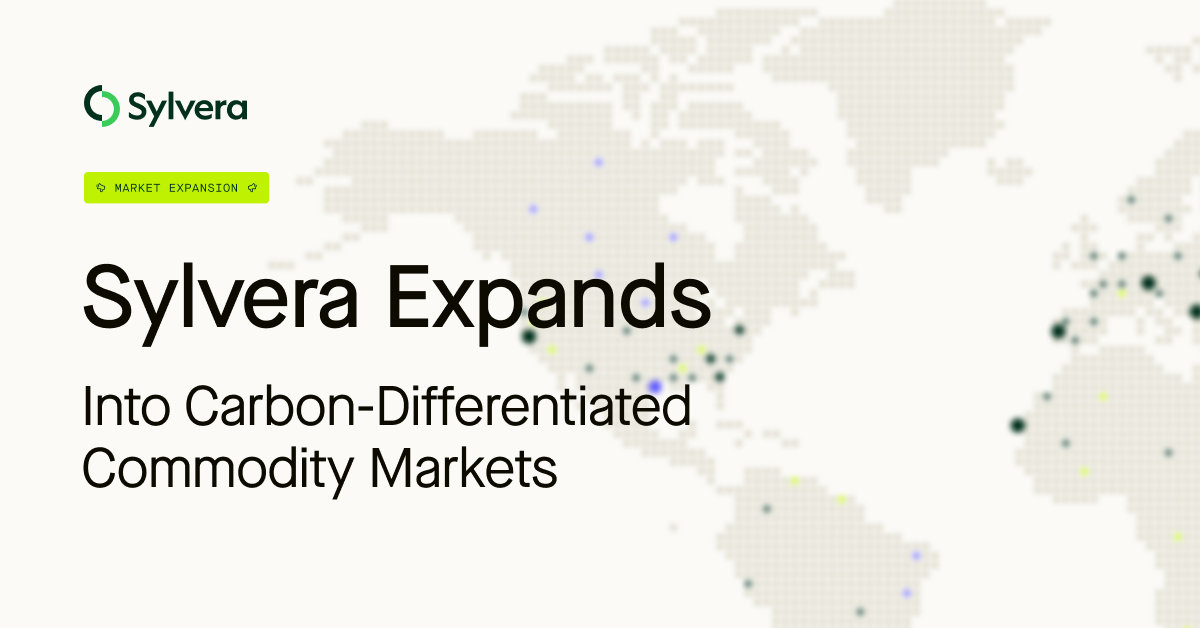“Over the years we’ve invested significantly in our field data team - focusing on producing trusted ratings. While this ensures the accuracy of our Ratings, it doesn’t allow the scale across the thousands of projects that buyers are considering.”
For more information on carbon credit procurement trends, read our "Key Takeaways for 2025" article. We share five, data-backed tips to improve your procurement strategy.

One more thing: Connect to Supply customers also get access to the rest of Sylvera's tools. That means you can easily see project ratings and evaluate an individual project's strengths, procure quality carbon credits, and even monitor project activity (particularly if you’ve invested at the pre-issuance stage.)
Book a free demo of Sylvera to see our platform's procurement and reporting features in action.
Corporations are coming under growing pressure to set ambitious climate targets. Private sector organizations will play an essential role in combating climate change, and could even lead the way with ambition and innovation. However, corporations open themselves up to accusations of greenwashing when they make climate action claims that they cannot back up. This can lead to severe reputational, regulatory and legal consequences.
Currently, most climate claims are unregulated, and participation in carbon markets is voluntary for most sectors. What’s more, many climate terms do not have one universal definition: for example, an organization can claim to be carbon neutral because it may have offset all its emissions (including scope 3) with high-quality credits, whereas another may also claim to be carbon neutral, but has offset only direct emissions for a specific product without performing any due diligence on credit quality.
In the absence of clear legal frameworks and definitions, how can organizations ensure they don’t fall foul of this uncertainty? The key is transparency.
What is greenwashing?
Greenwashing has become a widely used term to describe any misleading marketing or promotion about an organization’s positive impacts on the environment. This might be from misleading advertising, overstating claims, or misrepresenting the net impact of an organization’s actions on the environment.
Regulation
Some “greenwashing” activities are already being targeted by regulators. One recent high profile example was the $1.5 million fine handed out by the US Securities and Exchange Commission (SEC) to an investment branch of a major US bank for misstating ESG considerations for some of its investment funds. This comes after the SEC announced a dedicated task force to tackle climate and ESG-related violations of disclosure requirements — touted in the media as the “greenwashing taskforce”. The UK’s Financial Conduct Authority published its own guidance for financial institutions on how to avoid greenwashing last year, while the EU set outs its economy-wide anti-greenwashing proposals back in March.
Regulatory interventions are likely to increase as disclosure requirements become stricter and ambition ramps up to meet global climate goals. The SEC’s draft climate-related disclosures rules clearly indicate the direction of travel, even if the details are yet to be finalized. Organizations will need to report far more about their environmental impacts and the actions they are taking to mitigate these.
Another key development to watch out for is the work of the new International Sustainability Standards Board (ISSB), which was established last year under the International Financial Reporting Standards (IFRS) Foundation. The ISSB aims to “deliver a comprehensive global baseline of sustainability-related disclosure standards that provide investors and other capital market participants with information about companies’ sustainability-related risks and opportunities to help them make informed decisions.” Their work is ongoing.
Legal action
There is also a corresponding growth in public scrutiny of private sector climate claims. Consumers, shareholders, and voters are all using their influence to hold organizations to account and ensure they live up to their commitments.
One route for this that might become an increasing concern to companies is litigation. A test case for this approach has been brought by a group of environmental NGOs including Greenpeace, Friends of the Earth and ClientEarth against a major energy company for greenwashing advertising, which they claim violates rules against misleading advertising. Should the lawsuit be successful, it could open the doors for many more similar cases.
Is carbon offsetting greenwashing?
Carbon offsetting is an activity that has been particularly criticized for greenwashing in some spheres. Organizations that use offsetting alone to make climate claims, or are not transparent with their offsetting strategies, are particularly at risk. However, carbon offsetting is not inherently greenwashing and has a critical role to play in the global net zero transition, as long as organizations consider 2 key points:
- Follow the mitigation hierarchy
Offsetting is not an excuse to otherwise continue business as usual and avoid essential decarbonization activities. It should be used as part of a wider strategy that follows the mitigation hierarchy (avoid, reduce, offset), for example following the VCMI Code of Practice.
- Use high quality credits
Offsetting will only have a positive climate impact if the credits used are additional, permanent and justified by legitimate, verifiable carbon accounting. Credit buyers need to conduct sufficient due diligence to be sure of this, and should report transparently on this and the details of their use of credits.
Avoiding greenwashing: transparency is key
Clearly reporting on environmental impacts in a way that is consistent between years and comparable between organizations allows stakeholders to accurately assess an organization’s claims. Failing to disclose this information risks suggesting that organizations have something to hide, or don’t have the facts to back up their claims. Regulators are already indicating that more and more of these disclosures will be required: The Task Force on Climate-Related Financial Disclosures (TCFD) requirements are being codified in more and more jurisdictions, and the final SEC rule on climate-related disclosures will almost certainly increase requirements further.
It is not a question of where regulations are going, but how fast they will get there. Being unprepared for this will be costly and potentially damaging for a business. In the meantime transparency is the best way to ensure climate claims are legitimate and trusted.




.avif)






